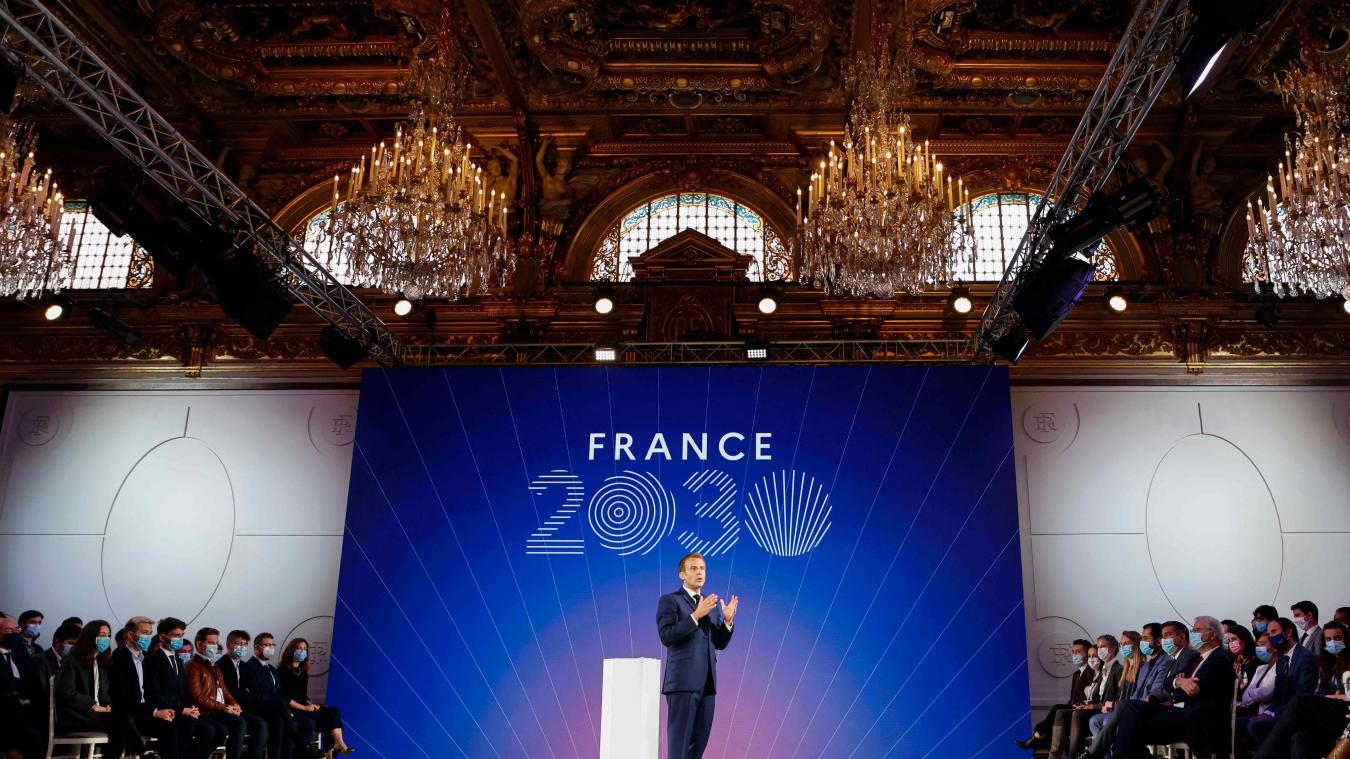The Health Innovation Plan has a budget of €7.5 billion. It is part of a vast plan to relaunch the French economy, called France 2030, with a total budget of €54 billion over almost ten years, that is designed to“transform key sectors of the economy,” according to Emmanuel Macron, from energy to aerospace, including of course healthcare industries. In January 2022, Bruno Bonnell took charge of this plan, being appointed to the position of Secretary General for Investment. This French entrepreneur and politician is the co-founder of Infogrames and the former CEO of Infogrames and Atari.
The French President’s stated ambition is for France to resume its position as leader in the field of innovation in healthcare in Europe, with particular focus on biotherapies, digital health, emerging infectious diseases and medical technologies. The idea is to encourage breakthrough innovations in biomedical research, medtech and e-health, by facilitating the growth of promising startups in these sectors, by training the talents of tomorrow, and by simplifying administrative procedures to encourage clinical research in France, for “medicine that is more predictive, more preventive, and more innovative.”
“The medical revolution will be achieved through the convergence of breakthrough innovations in healthcare, as well as the convergence of quantum technology, artificial intelligence and anything that allows us to use the Internet of Things to connect hitherto separate technological families,” Emmanuel Macron, President of France.
In concrete terms, these €7.5 billion are distributed as follows:
– €1 billion for cross-cutting research support – clusters, translational research, attracting high-level scientists, R&D infrastructures.
– €500 million allocated to cross-cutting support for the maturation of technologies and clinical trials.
– €2.4 billion for acceleration strategies for biotherapies, digital health, emerging infectious diseases, CBRN (Chemical, Biological, Radiological, Nuclear) risks and medical technologies.
– €1.5 billion to support industrial investments by calls for national projects and an IPCEI (Important Project of Common European Interest) to better support the development of healthcare innovations.
– €2.1 billion to support the emergence, growth and industrialization of healthcare startups by Bpifrance (the French Public Investment Bank).
– Accelerate access to the market, ensure sustainable market growth and streamline price regulations for drugs and medical devices (target of a 2.4% increase in spending on healthcare products in the National Health Insurance Expenditure Target).
A Follow-up Committee
Announced by Prime Minister Jean Castex during the inauguration of PariSanté Campus on December 14, 2021, a follow-up committee has been created to oversee the roll-out of the plan and assess its impact. It is chaired by Olivier Bogillot, President of Sanofi France and Chairman of the Strategic Committee for the Healthcare Industries and Technologies, and also includes Agnès Audier, Senior Advisor at the Boston Consulting Group, Christine Clerici, President of the University of Paris, Florence Favrel-Feuillade, Director General of the Brest University Hospital, Thomas Lombes, Vice-CEO for Strategy at INSERM, Franck Mouthon, President of France Biotech, and Eric Vibert, Professor of Surgery at the Paul Brousse Hospital.
Creation of a Health Innovation Agency
With a launch planned for 2022, its role will be to promote a strategy, and short- and long-term objectives, with all the research and innovation stakeholders. It will become the one-stop shop for drivers of innovation to accelerate the arrival of new products on the market. It will also support businesses whose projects are deemed to be priorities for the national health innovation strategy and will work closely with the Follow-up Committee.
€800 million for the development and production of biomedicines
In October 2021, President Emmanuel Macron set out a clear objective: “By 2030, France must have at least 20 biodrugs to treat cancers, emerging diseases and chronic diseases, including age-related diseases.” Currently, 95% of biotherapies used in France are imported. €800 million will therefore be devoted to changing the game.
€275 million have been set aside for major future technologies such as monoclonal antibodies, CAR-T cells, which target the malignant cells of certain leukemias or lymphomas, or innovations in gene therapy. €280 million are dedicated to improving industrial processes, for example by automating production lines. Finally, between €150 million and €250 million allow the funding of the roll-out of industrialization projects in bioproduction.
France is also keen to attract top-level talent (investors, researchers, entrepreneurs, etc.). With this in mind, Rafaèle Tordjman, President of the Jeito Capital investment fund, was appointed by the French government in July 2021 as “Special Envoy for Healthcare Innovation” to promote the French healthcare ecosystem abroad.
Strong emphasis is also being placed on training, with the emergence of new specialized programs, such as the Campus Biotech Digital (https://immerscio.bio) driven by bioMérieux, Novasep, Sanofi and Servier in close partnership with Atos, IBM and Microsoft. Launched in April 2022, it provides training programs that cover the whole of the bioproduction chain.
€750 million to support the fight against emerging infectious diseases
To prepare for future pandemics, the plan provides €750 million to “strengthen and establish systemic preparedness for the risks of a new major health crisis.”
Thirteen measures were therefore disclosed in early March 2022 to combat emerging infectious diseases and CBRN (Chemical, Biological, Radiological, Nuclear) threats. Among them, two priority research programs and facilities will focus on tools for fighting and detecting zoonotic emergencies and on accelerating the acquisition of knowledge of the mechanisms of infection by pathogenic microorganisms and their animal to human transmission. The remainder of the budget dedicated to this theme will go to innovation projects, the development of production and management capacities for strategic stocks and the creation of two university research schools in the field of emerging infectious diseases.
Supported by the French government, Sanofi also announced in March 2022 its plan to invest €935 million over five years to provide France with a complete and autonomous value chain for mRNA technology.
France aims to “create the medical devices of tomorrow”
During a visit to the Balt site near Paris on February 21, 2022, the French Minister Delegate for Industry, Agnès Pannier-Runacher, announced the deployment of €400 million to strengthen the French medical device industry. This package is aimed at developing new technologies related to strategic devices (surgical robots, implants and prostheses, digital solutions for mental health, biocompatible and connected medical devices, etc.), to facilitate access to innovative medical devices for healthcare institutions, to support industrialization projects and to reduce the time to market.
At the end of February 2022, the “Health Capacity 2030” window was opened. The purpose of this call for projects is to support industrial projects in the fields of biotherapies, the fight against emerging infectious diseases and CBRN threats, and medical devices. It will be endowed with a budget of more than €800 million and will run until Thursday, December 29, 2022.
€650 million to boost digital health
This €650 million public package will make it possible to leverage €1.5 billion from private operators to finance a vast training campaign targeting all players involved in digital health, support the French imaging industry (including foreign companies with an industrial and research presence in France), strengthen high-priority R&D facilities and programs, and develop 30 third-party sites by 2025 in order to experiment new uses and solutions. This strategy relies on several partners, in particular the Health Data Hub, the public platform for accessing French health data that also serves as an intermediary for research project drivers, and the PariSanté Campus, a world-class cluster launched in December 2021, dedicated to digital health and AI, bringing together public research, universities, hospitals and entrepreneurs.




